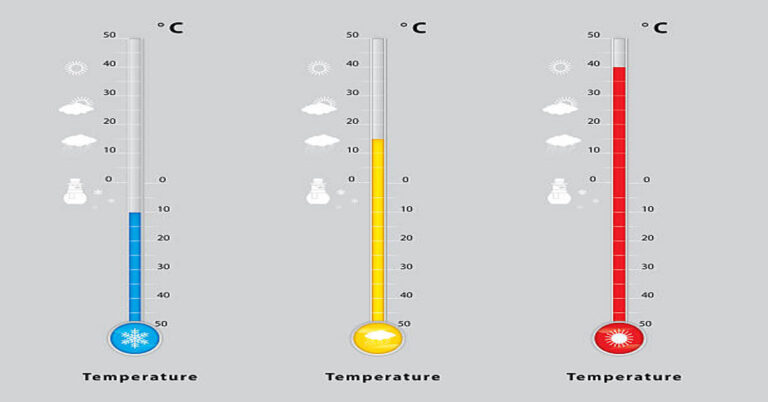
Delta Math has become one of the most widely recognized platforms in modern education for teaching, practicing, and assessing mathematics skills. Unlike many learning tools that are primarily static, this system combines interactivity, adaptive problem sets, instant feedback, and robust teacher controls. It has been embraced by schools, tutors, and independent learners alike, as it brings together the traditional rigor of mathematics instruction with the flexibility of technology.
In this article, we will explore Delta Math in a detailed manner, spanning from its origin and purpose to its unique features, practical applications, advantages, limitations, and real-world classroom integration. We will also highlight how students and teachers can maximize its effectiveness, provide illustrative examples, and include a tabular breakdown of its most important functionalities. By the end of this guide, you will have a deep understanding of Delta Math as an educational ecosystem.
1. Understanding Delta Math
Delta Math is an online mathematics platform designed primarily for middle school, high school, and early college learners. It allows teachers to assign problem sets across a wide range of topics, from basic arithmetic to advanced calculus. The platform emphasizes problem-solving through structured practice and immediate feedback.
The core design principle of Delta Math is to make math learning consistent, repetitive, and adaptive. Students are not only given multiple attempts but also guided solutions that help them learn from mistakes. This methodology makes it stand out compared to traditional worksheets, where feedback is often delayed.
2. History and Development
Delta Math was created by Zach Korzyk, a mathematics teacher, who wanted to provide his students with unlimited opportunities for practice without the constraints of paper assignments. His vision was to blend classroom instruction with technology that could reinforce learning anytime, anywhere.
What started as a classroom experiment quickly gained traction in schools across the United States. Teachers appreciated its ease of assigning problems and tracking progress, while students valued the immediate feedback. Over time, the platform expanded to include premium features, advanced analytics, and even video explanations.
3. Key Features of Delta Math
Delta Math provides a host of features that make it highly effective for both learners and educators. Below is a structured table to illustrate these features:
| Feature | Description | Benefit |
|---|---|---|
| Wide Topic Range | Covers topics from elementary arithmetic to AP Calculus and Statistics. | Supports learners across diverse grade levels. |
| Instant Feedback | Students receive immediate guidance on wrong answers. | Helps correct misconceptions quickly. |
| Customizable Assignments | Teachers can assign problems aligned with curriculum standards. | Tailors learning to class needs. |
| Randomized Problems | Each student gets unique problems generated by algorithms. | Reduces chances of copying and enhances practice. |
| Skill Mastery Tracking | Teachers can monitor progress via dashboards and reports. | Provides data-driven instruction. |
| Explanatory Videos | Many problems are supported with solution videos. | Supports independent learning. |
| Differentiated Practice | Assignments can be adjusted for difficulty level and pacing. | Addresses varied student abilities. |
| Integration with LMS | Compatible with learning management systems like Google Classroom. | Simplifies teacher workflow. |
4. How Delta Math Works
The process of using Delta Math is straightforward, yet it is designed to be robust enough for complex educational environments.
- Teacher Setup – Teachers create an account, set up classes, and select assignments from the vast library.
- Student Enrollment – Students join with a class code, which connects them directly to the teacher’s assignments.
- Assignments and Practice – Teachers assign problem sets based on topics. Students complete them online at their own pace.
- Immediate Feedback – After each question, students receive feedback that explains whether their answer was correct, and if not, why.
- Analytics and Reports – Teachers monitor progress through detailed reports showing accuracy, time spent, and skill proficiency.
This flow ensures that both teaching and assessment are seamlessly integrated.
5. Benefits for Students
Students using Delta Math experience several key advantages:
- Unlimited Practice: The platform generates fresh problems every time, which eliminates memorization and promotes skill-building.
- Confidence Building: Immediate feedback helps students learn from mistakes instead of feeling stuck.
- Self-Paced Learning: Students can practice as much as they need without time restrictions.
- Preparation for Exams: Its structured assignments make it particularly effective for preparing for standardized tests.
- Accessible Anytime: As an online platform, it can be accessed from school, home, or any location with internet access.
6. Benefits for Teachers
Teachers also find Delta Math a powerful ally in the classroom.
- Efficient Assignment Creation: Assignments can be customized in minutes.
- Data Insights: Teachers can identify struggling students quickly and offer interventions.
- Differentiation Made Easy: With varying difficulty levels, teachers can assign appropriate work to different ability groups.
- Reduced Paperwork: Online grading reduces the time spent on manual corrections.
- Consistency Across Classrooms: Helps maintain uniformity in instruction across large groups of students.
7. Practical Applications
Delta Math is used in diverse educational settings:
- Classroom Instruction: To reinforce lessons taught by teachers.
- Homework Assignments: As a digital alternative to paper-based homework.
- Tutoring Programs: Tutors use it to provide extra practice for struggling learners.
- Test Preparation: It is widely used to prepare for SAT, ACT, and AP exams.
- Summer Bridge Programs: Schools employ it to prevent learning loss during long breaks.
8. Comparison with Other Math Platforms
While several math learning platforms exist, Delta Math holds a distinct place.
| Platform | Strengths | Limitations Compared to Delta Math |
|---|---|---|
| Khan Academy | Free video library, conceptual explanations. | Less focus on randomized practice problems. |
| IXL | Wide subject coverage beyond math. | Subscription model may limit access. |
| ALEKS | Adaptive assessment-driven approach. | More suited for college-level remediation. |
| Delta Math | Problem practice, immediate feedback, analytics, free access. | Fewer video lessons compared to others. |
9. Limitations of Delta Math
Despite its advantages, Delta Math has some limitations:
- Limited Conceptual Teaching: Focuses more on practice than in-depth theory explanation.
- Internet Dependency: Requires stable connectivity to function effectively.
- Over-Reliance Risk: Students may focus on “getting problems right” rather than understanding deeper concepts if not guided properly.
- Premium Barriers: Some advanced features are only available with a subscription.
10. Strategies to Maximize Effectiveness
To ensure that Delta Math is used most effectively, educators and learners should:
- Combine with Instruction: Use it as reinforcement, not as a substitute for teaching.
- Review Errors Thoroughly: Encourage students to analyze mistakes rather than rushing through.
- Balance Practice and Conceptual Learning: Pair it with lessons, videos, and discussions.
- Encourage Independent Practice: Motivate students to go beyond assigned work for mastery.
- Use Reports Proactively: Teachers should regularly analyze data to adjust instruction.
11. Delta Math in Real-World Classrooms
Teachers have reported success stories where students significantly improved their test scores after consistent use of Delta Math. For example, many schools incorporate Delta Math into “bell ringers” at the start of class, where students solve a few problems to warm up. Others integrate it into flipped classrooms, where students practice problems at home and spend class time discussing strategies.
Some districts even mandate its use for benchmark testing, citing its ability to track progress across entire grade levels.
12. Future of Delta Math
As technology evolves, Delta Math is expected to expand further. Potential future developments may include:
- AI-Driven Adaptivity: Tailoring problems even more precisely to student performance.
- Gamification: Adding game-like features to increase engagement.
- Expanded Multimedia: More explanatory videos and interactive tutorials.
- Mobile Optimization: Enhanced mobile apps for greater accessibility.
- Integration with AI Tutors: Personalized tutoring features within the platform.
13. Conclusion
Delta Math represents a paradigm shift in how mathematics is taught and learned. By offering unlimited practice, instant feedback, and teacher-friendly analytics, it bridges the gap between traditional teaching and modern technology. While it should not replace classroom instruction, it serves as a powerful supplement that reinforces skills, builds confidence, and prepares students for academic success.
The platform’s continued growth highlights the increasing demand for digital tools that complement the classroom environment while fostering independent learning. With thoughtful use, Delta Math can be a cornerstone in creating math learners who are not just test-ready but also confident problem-solvers.
FAQs
Q1: Is Delta Math free to use?
Yes, Delta Math provides a free version with extensive features. However, some premium features are available through subscription plans.
Q2: What grade levels is Delta Math best suited for?
It is most commonly used from middle school through high school, covering topics from pre-algebra to calculus.
Q3: Can parents use Delta Math for homeschooling?
Yes, many homeschooling families use Delta Math to structure math practice and track progress.
Q4: How does Delta Math help with test preparation?
By offering randomized practice problems and immediate feedback, it prepares students for standardized exams like SAT, ACT, and AP tests.
Q5: What makes Delta Math different from other online math platforms?
Delta Math focuses heavily on problem practice, feedback, and teacher analytics, while others may emphasize conceptual teaching or adaptive assessments.






